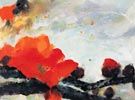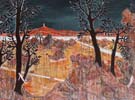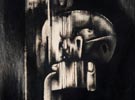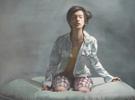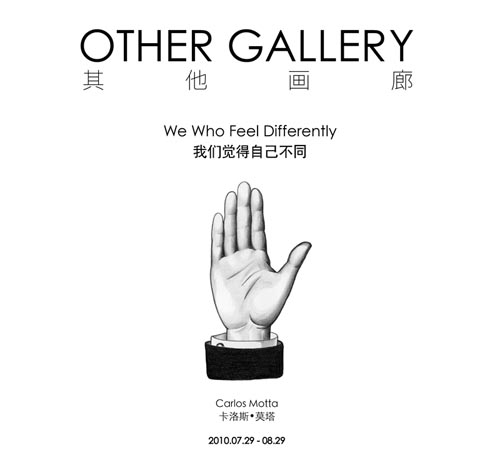
展览时间:2010-07-29 ~ 2010-08-29
展览地点:其他画廊
参展艺术家:卡洛斯•莫塔
展览介绍:
卡洛斯•莫塔(Carlos Motta)(1978年生于哥伦比亚波哥大市)是一位在纽约工作生活的艺术家,多次在纽约PS1/MoMA当代艺术中心、柏林乌费尔剧场、费城当代艺术协会、波哥大阿尔扎泰•阿文达诺基金会等地举办个展。他曾经和即将展出的展览有:“公民们,为了艺术!”( To the Arts, Citizens! )(波尔图塞拉维斯博物馆),“艺术政治”(The Politics of Art )(雅典国家当代艺术博物馆),“跨界的地理学” (Geography of Trans-territories )(旧金山艺术协会),第十届里昂双年展精选作品展(奥地利林茨市OK公共文化中心),“演员休息室”(The Greenroom )(哈德逊河安南达尔 CCS巴德•赫赛尔艺术馆),“温柔的操控”(Soft Manipulation )(卢森堡当代艺术中心),“美国的民主”(Democracy in America)(纽约创造时光)。卡洛斯•莫塔在2008年被提名为古根海姆基金会会员。
哈德逊河安南达尔是美国纽约达切斯郡的一个村庄。译者注。
我们觉得自己不同
卡洛斯•莫塔
“我们觉得自己不同”是一个由许多部分组成的艺术方案,它由一系列插图、海报、一部影像装置和一部网络档案构成。这件作品以哥伦比亚、南韩、挪威和美国的LGBTQ(女同性恋者、男同性恋者、双性恋者、变性人、酷儿)群体的采访为基础,探究有关性取向和性别身份问题的演变以及文化、社会、政治、法制的历史。作品试图创造一个比较的平台,从不同的文化、法制环境中的性的身份政治的角度,来对表征、公民权和民主政治的概念进行批判性的讨论。
什么是LGBTQ权利?为什么要为此而斗争?在“多样的性”的语境下,平等的权利意味着什么?性平等该如何探讨?只靠法律来保证性平等是否足够?传统的文化偏见在一个更加包容的社会是否有可能加以改观?
最近,一些国家已经将平等法的实施视为对LGBTQ身份歧视的反应。几个月前,哥伦比亚宪法法院决定授予同性夫妇以合法权利。美国加利福尼亚州“第八号提议”的通过将公民权利平等的进程一拖再拖,由此激发了一场关于婚姻是一种人权的辩论。但同时,在有关这些问题的政策改革方面,挪威虽然已经成为了领头羊,然而最近关于男女同性恋是否有权领养或结婚的争论证明在性政策方面尚存在文化上的分歧。在南韩,即使某些组织机构的工作已经在强调“平等”的重要性了,这里的情况也不容乐观。平等权依旧不停地被侵犯,而这些侵犯行为又往往得不到应有的惩罚。
“我们觉得自己不同”在上海其他画廊展出,其中包括11张大幅黑白图片,它们以多样的(性)身份的形象再现主题;20张文字海报,这些海报提取有关LGBTQ在全世界范围内的运动/斗争的概念和关键词,将它们组成一首诗;一些采访挪威与哥伦比亚地区活动者经过剪辑的录像;以及一篇由中国学者包宏伟写就的文章,他在文中通过塑造一个整体的历史情境,来阐明中国LGBTQ运动的形成和地位。所有这一切的目标都在于建构一个空间,反映在有着传统宗教礼法与政治体制的国家中,实现权利平等的重要性与艰巨性。
“我们觉得自己不同”是我作为一个同性恋男人、一个同性恋公民和一个同性恋艺术家来试图去理解与LGBTQ身份有关的文化、政治问题的复杂性,LGBTQ身份在很大程度上界定了我在这个世界上的位置,并且在一定程度上规定了我本身的主体性的形成。
我生长于20世纪80年代的哥伦比亚,一个保守的天主教国家,所以我在上学和工作期间不得不隐瞒我的性取向。我经常被人用语言恐吓或取笑,因为我是个“柴哥”(faggot)(美国人对男同性恋的蔑称。译者注)。当时我想无视这种歧视,想把它当作是“正常的”或必可避免的。但其实,我就是“不同”。如今,我从政治上思索我童年和青年时的遭遇,并且强烈的拒绝这种经验。但不幸的是,这个故事并不只发生在我一个人身上,在这个世界上,每天每处都上演着同样的故事。“我们觉得自己不同”不能抚平这种离经叛道的行为带来的心理或身体上的创伤,但是却能让我清楚明白自己个人的与政治上的位置,明白在这个位置上就需要去控诉、拒绝,并坚持自身的差异性,而这从根本上说是对的。
最后,我想感谢那些帮助我实现这个方案的人们:感谢挪威卑尔根市USF展示空间(Visningsrommet USF)的阿尔恩•奥尔森(Arne Skaug Olsen)和纽约国家艺术委员会提供的慷慨资助;感谢Tangrama Gráfica的尼古拉斯•康绥格拉(Nicolás Consuegra)和莫妮卡•佩兹(Mónica Páez),他们帮助我完成了那些海报;感谢汉贝尔托•胡恩卡(Humberto Junca)制作了那些图片;感谢所有在挪威和哥伦比亚接受我们采访的人们和我们分享他们的经历,并允许我进一步传播他们共同的梦想和奋斗;感谢凯•赛达(Kay Saida)和胡安•卡洛斯•波萨达(Juan Carlos Posada)提供的宝贵帮助;还要感谢上海其他画廊让我有幸展出自己的作品。
"Carlos Motta (b. Bogotá, Colombia, 1978) is a New York-based artist whose work has been presented in solo exhibitions at PS1/MoMA Contemporary Art Center, New York; Hebbel am Ufer, Berlin; the Institute of Contemporary Art, Philadelphia; and Fundación Alzate Avendaño, Bogotá amongst others. His upcoming and past group exhibitions include:To the Arts, Citizens!, Serralves Museum, Porto; The Politics of Art, National Museum of Contemporary Art, Athens; Geography of Trans-territories, San Francisco Art Institute; X Biennale de Lyon; Biennale Cuvée, OK Offenes Kulturhaus, Linz; The Greenroom, CCS Bard Hessel Museum of Art, Annandale-on-Hudson; Soft Manipulation, Casino Luxembourg; and Democracy in America, Creative Time, New York. Carlos Motta was named a Guggenheim Foundation Fellow in 2008."
We Who Feel Differently
by Carlos Motta
We Who Feel Differently is a multi-part art project composed of a series of illustrations, posters, a video installation and an Internet archive (in progress). The work investigates the cultural, social, political and legislative history and development of issues regarding sexual orientation and gender identity, based on dozens of interviews conducted with LGBTQ (Lesbian, Gay, Bisexual, Transgender and Queer) communities in Colombia, South Korea, Norway and the U.S. The work attempts to create a comparative platform to critically discuss the notions of representation, citizenship and democracy from the perspective of sexual and identity politics in different cultural and legislative environments.
What are “LGBTQ rights” and why fight to achieve them? What does equality of rights mean in the context of "diverse sexualities"? How should sexual equality be discussed? Is the implementation of the law enough? Is it possible to change traditional cultural prejudices in favor of a more inclusive society?
In recent times some countries have considered the implementation of equality laws to respond to discriminatory environments against LGBTQ identities. Some months ago, Colombia’s Constitutional Court decided in favor of the rights of same sex couples. The U.S. has witnessed the endorsement of “Proposition 8” in California delaying a slow process to attain equality of civil rights and awakening a debate about marriage as a (human) right. Norway, on the other hand, has been a leading country in implementing progressive policies in regard to these issues, yet the recent debates on gay and lesbian rights to adopt and marry attest that there is a cultural divide with respect to sexual politics. The situation in South Korea is precarious despite the work of organizations that shed light on the importance of "equality." Rights are constantly violated and often these violations remain unpunished.
The presentation of We Who Feel Differently in Shanghai’s Other Gallery includes a series of eleven large scale black and white illustrations based on iconic representations of diverse (sexual) identities, a series of twenty text posters that construct a poem using key words and concepts associated with the LGBTQ movement/struggle around the world, a few edited video interviews with activists in Norway and Colombia, and a text written by Chinese scholar Hongwei Bao, who thoroughly creates a historical context to understand the formation and status of the LGBTQ movement in China. Together, all of these pieces aim at constructing a space for reflection about the important yet difficult task of achieving equality of rights in countries with traditional religious and political systems.
We Who Feel Differently is my attempt as a gay man, a gay citizen and a gay artist to understand the complexity of the cultural and political discussion around LGBTQ identities, which has largely defined my place in the world and to some extent the formation of my own subjectivity.
Having grown up in the 1980s in Colombia, a conservative and Catholic country, I had to conceal my sexual orientation in school and at work. I was verbally bullied and often made fun of because of being a “faggot.” I learned to ignore this discrimination and, at the time, understood it as being “normal” and inevitable. I was in fact “different.” Today, I think politically and have come to strongly reject that experience of my childhood and adolescence. Unfortunately, my story is not unique; it is a story that continues to take place every day everywhere in the world. We Who Feel Differently can not repair the psychological or physical damage caused by such erratic behavior but it allows me to contribute a clear personal and political position about the need to denounce, reject and insist on the respect of difference, which is a fundamental right.
Lastly I would like to thank the following people who have made this project possible: Arne Skaug Olsen at Visningsrommet USF, Bergen, Norway and the New York State Council for the Arts for their generous financial support; Nicolás Consuegra and Mónica Páez of Tangrama Gráfica, with whom I collaborated in making the posters; Humberto Junca for making the illustrations; all the interviewees in Norway and Colombia for sharing their experience and letting me help to further communicate their ideas and common struggle; Kay Saida and Juan Carlos Posada for their invaluable assistance; and Other Gallery in Shanghai for their interest in my work.
- 2011-04-30 ~ 2011-05-30出窍记·缪晓春个展
- 2011-04-29 ~ 2011-05-20静中人Figures of Silence —Michel Madore
- 2011-04-30 ~ 2011-05-14黑白
- 2011-05-28 ~ 2011-07-28四重奏——孟昌明水墨荷花作品展
- 2011-05-28 ~ 2011-06-24“远与近”意大利当代著名艺术家作品展
- 2011-05-28 ~ 2011-07-02底下有石头:杨心广个展
- 2011-05-21 ~ 2011-06-20湖滨诗境──Celest生态摄影展(续展)
- 2011-05-21 ~ 2011-06-05缓行——十二位八零后艺术家
- 2011-04-28 ~ 2011-06-05观天悟道——张国龙艺术巡展
- 2011-05-28 ~ 2011-07-10诺特·维塔尔:激浸







